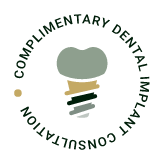
Your alarm jolts you awake. Although you’ve been in bed since 8 PM the night before, you feel like you’ve only slept for a few minutes. As you walk to the kitchen to pour your first cup of coffee, you notice your mouth feels dry and your morning headache is back. By noon, you can barely focus, your eyelids feel like they weigh 10 pounds, and your irritability is through the roof.
If this sounds all too familiar, then you are not alone. In fact, about one in every 15 Americans has sleep apnea. Unfortunately, recent research has also linked this common sleeping disorder with depression. If you have been diagnosed with sleep apnea in Spring Lake, then read on!
What Does the Research Say?
Are you ready for a shocking statistic? According to a study published in the Journal of Clinical Sleep Medicine, a whopping 70% of patients with sleep apnea experience symptoms of depression. Plus, subsequent research found that insomnia related to conditions like sleep apnea had the largest connection to depression. While the exact causality of the relationship is still being studied extensively, experts have decades of research supporting the link between lack of sleep and mood. With this in mind, it is important for patients with sleep apnea to be aware of symptoms of depression.
Common Symptoms of Depression
Sleep apnea is widely known for symptoms like loud snoring, waking up abruptly due to shortness of breath, and overall difficulty sleeping. Unfortunately, other emotions and behaviors stemming from this condition are often looked at as simply a part of living with sleep apnea. To ensure that you get the treatment you need for your emotional and physical health, read on for common symptoms of depression:
- Feelings of sadness, emptiness, or hopelessness.
- Changes in appetite.
- Irritability, frustration, and anger.
- Chronic fatigue and tiredness.
- Trouble thinking or concentrating.
- Frequent headaches.
When to Seek Treatment
If sleepless nights, consistent irritability, and an inability to focus are a routine part of your life, then it is time to seek treatment. To begin, you can schedule an appointment with your primary care physician or speak directly with your dentist. Since they have an advanced understanding of oral structures and how they affect your airways, your dental team can help you reach a diagnosis and provide you with long-lasting relief.
About the Author
After earning his Doctor of Dental Medicine from the University of Pennsylvania’s School of Medicine, Dr. Edward J. Dooley served his country as a Dental Officer in the Navy. Over the past nearly three decades, Dr. Dooley has completed over 1,500 hours of continuing education, received certification in multiple dental techniques, and helped numerous patients with sleep apnea therapy. If you are seeking treatment for sleep apnea, don’t hesitate to visit his website or give him a call at 732-974-2288.

